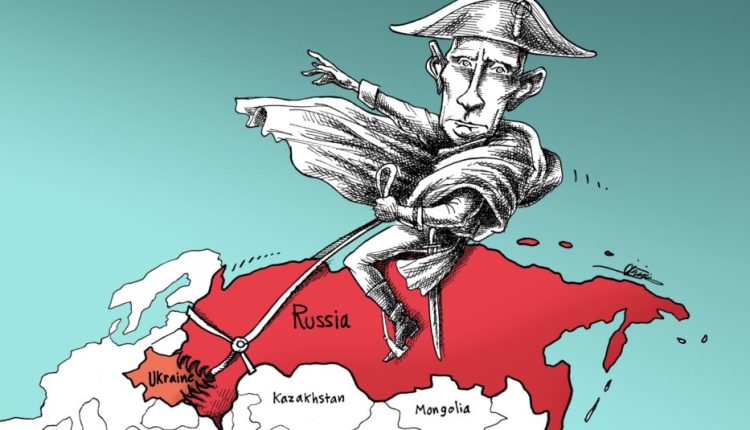Six months since Russia launched its war of aggression
On 24 August it will be six months since Russia launched its war of aggression. The indications at present are that the fighting will probably drag on for many months yet. In many locations the Russian forces are now well dug in and have consolidated their gains (although there are reports of some “dissatisfaction from the ground in areas occupied).
New weapons supplied by Western allies to Ukraine are capable of striking hard at the aggressor, especially at munitions stores and main supply routes. In various Western countries, Ukrainian forces are now being trained strategically and tactically in how to operate and how to fully utlilise the potential of the Western weaponry being supplied. These, it is estimated, number in their thousands and could in some way be a “game changer”.
Probably the most immediate concern is Ukraine’s nuclear power plants, expressly Zaporizhia. Their use as potential “consolidation and storage points” for Russian troops to reinforce and launch attacks from mean that there is always the potential for an “accident” and possibly a catastrophe. If the International observers are allowed access to ascertain the condition of the plants, then this may assist in avoiding any catastrophe. The United Nations (which gets credit for the grain deal, but really should have done more) could help with negotiations and then try to declare/designate the power plants as non-military targets in order that both sides avoid “occupying/using” the plants, that would be a real start. This is probably not realistic at this point but still should be attempted.
The war will only end when Putin decides he has inflicted enough pain on Ukraine or if he considers that he is paying too high a price for continuing the “special military operation”.
In the coming weeks we will potentially see how much Western sanctions, have really affected Russia’s economy. In the shorter term it could be said that Russia has come off relatively well. Exports of oil and gas have continued to flow. Over time, however, the price Russia pays will grow and this can be evidenced by the recent agreements for Belarus to “repair” Russian military equipment (especially aviation) due to the “reduced” sanctions in place against Belarus. Whatever the outcome of the war, the West must stop paying billions of dollars for Russian gas and oil.
The effectiveness of the Ukrainian defence (assisted by Western supplied equipment) is evidenced by the recent scenes of destroyed arms dumps in Russian-controlled Crimea and other areas that are far from the frontline of fighting. This indicates that despite the gains so far Russia cannot relax and assume that the territory occupied is secure.
Whether Ukraine’s forces, after heroic but mostly defensive efforts, can effectively transit to more offensive manoeuvres or not is debateable at this moment. A lot of the recent speculation has focused on the Russian-held southern city of Kherson. If Ukraine could re-take Kherson then it would be a major propaganda coup for Ukraine and further demoralise the Russian forces.
However, restraint must be urged and no “un-thought through decisions” made. This is primarily because urban warfare is extremely difficult for the attacker unless the ground troops are properly trained and use the right equipment and tactics (not tanks on the streets – we witnessed the horror of the defence of Mariupol and the tactics finally employed by Russian forces to take the city).


Comments are closed.